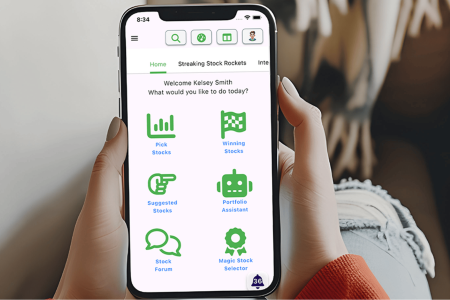The world of finance and investments is notorious for its extensive use of jargon. With a goal to enhance financial literacy and make the world of money more transparent, we have our “monthly jargon” articles that focus on debunking financial terms that are often used sans explanation. The first weeks of this year have seen heightened activity in the stock market, sparking people’s interest in the retail investing movement spurred by the Reddit revolution and GameStop. This recent market behavior sparks an important conversation between trading versus investing, two concepts often used synonymously that actually speak to two different roles when it comes to the financial markets. Let’s break down these terms and debunk the trader versus the investor personas.
Trading vs. Investing
Although these terms are often used interchangeably, these concepts represent two different approaches to the same end goal of aiming to make a profit in the financial markets. Through trading and investing, both traders and investors seek to profit from their actions. The general way to differentiate between the two: investing involves pursuing larger returns over an extended period of time by buying and holding with the main goal of staying invested despite any volatile market behavior, while trading involves actively taking advantage of daily market behavior – the rises, the falls, the spikes, etc. – to buy and sell positions over a shorter timeframe with the goal of making more frequent, quick profits.
What Is a Trader?
With the above differentiation in mind, a trader is someone who leverages short-term tactics to maximize returns over shorter periods of time, sometimes daily, weekly, or monthly. Traders attempt to execute trades or transactions that aim to profit quickly from fluctuations in the markets. The nature of trading requires frequent buying and selling of investment vehicles, from stocks and bonds to various commodities like metals, energy, and agriculture, to name a few. The main goal of trading is to generate returns that outperform the traditional buying-and-holding method by being very in tune with market movements and aiming to make quick moves to capitalize on and take advantage of market fluctuations. Giving the level of attention and commitment needed to properly execute trading, traders are often full-time traders as their career, sometimes referred to as day traders, which speaks to the constant daily attention to the markets needed to be successful at turning the risk assumed with frequent buying and selling into profits.
Traders seek to turn a profit by buying at a low price during a market dip and selling at a higher price when that investment vehicle rebounds and these fluctuations are typically manipulated in a short timeframe. Traders also partake in short-selling, a term seen in the news in regards to the Reddit GameStop action, which is a high-risk tactic that involves a trader speculating on the decline of a stock or a security and ultimately profiting if and when that speculation comes to fruition. Trading can be viewed as a high-risk, high-reward method that requires a heightened level of attention to daily fluctuations in the markets to manipulate market behavior to turn a profit. Traders tend to be highly experienced in the markets, and diving into the world of trading requires time and a high tolerance for risk.
What Is an Investor?
An investor is someone who aims to enter the markets and stay invested, often with the same positions, for the long term. Investing involves assuming a long-term approach to the markets and riding out the ups and downs of the market in the short term, knowing the long-term return is the ultimate goal. Think of retirement accounts when it comes to investing. When you contribute to a retirement account, your intention is to invest that money and stay invested until you retire and plan to need those funds. The main goal of investing is to steadily build wealth over time via a simple method: buying and holding. Investors can buy any type of investment vehicle – an allocated portfolio of stocks, bonds, mutual funds, and exchange-traded funds (ETFs). What makes you an investor is your intention to stay invested for the long-term, knowing you intend to stay the course and look beyond the fluctuations of normal market behavior.
Investors benefit from compounding profits and reinvesting profits and dividends into additional shares of stocks, bonds, or funds. Holding investments for years allows investors to take advantage of interest, stock splits, and dividends along the way, which traders who often do not hold positions for very long typically miss out on. Investors keep in mind that market fluctuations are inevitable, and they aim to ride out any selloffs or downtrends with the expectation that market history has always shown the markets will rebound, and any temporary losses will often be recovered plus some additional gains from the rebound. If you are saving for retirement via a 401(k) or equivalent account like a 403(b) or an individual retirement account (IRA), you are investing because your goal is to grow your retirement savings over the long term to achieve consistent long-term growth with little concern towards the day-to-day typical market fluctuations.
Final Points
While both traders and investors partake in the same financial markets, trading and investing involve different stratagems to obtain profits in the markets. Investors and traders have different objectives and approaches when it comes to the markets, and although one way is not more right than the other, it’s important to recognize that one method is likely more right for you and your financial goals. Trading may sound intriguing and presents itself as especially appealing given the recent GameStop action that resulted in hefty profits for some traders, but such outcomes are not always the case with trading, and significant losses also come with the territory at times. If your main goal is to save for retirement throughout your career, investing for the long term and consistently contributing to your 401(k) or IRA is the prudent method for your long-term savings goals.
Read the full article here









